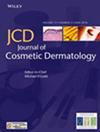Enhanced Tolerability and Improved Outcomes in Acne Management: A Real-World Study of Dermocosmetic Adjunctive Therapy
Abstract
Background
Topical retinoids, while renowned for their efficacy in treating acne vulgaris, are often hampered by inter-individual variability in tolerability. This challenge, primarily driven by side effects like erythema, scaling, and dryness, significantly impacts patient adherence and, ultimately, treatment outcomes.
Aims
This prospective, multi-center, observational study investigated the novel role of a specific dermocosmetic regimen as adjunctive therapy, focusing on its ability to mitigate retinoid-induced side effects and enhance the overall tolerability of acne treatment regimens in a Korean population.
Patients and Methods
We enrolled 304 patients receiving conventional acne therapies and integrated a standardized dermocosmetic regimen (foaming facial wash and moisturizer) for 12 weeks. Our primary endpoint assessed changes in skin sensitivity scores in both retinoid and non-retinoid users. We incorporated a patient-reported outcome measure evaluating acne's impact on quality of life across different facial areas as a secondary endpoint.
Results
Our results revealed a significant improvement in skin sensitivity across both patient groups, effectively mitigating the anticipated heightened sensitivity in retinoid users. This finding suggests that dermocosmetics may hold the key to unlocking consistent, age-independent tolerance to retinoid therapy. Furthermore, we observed a compelling correlation between improvements in cheek acne and enhanced quality of life, highlighting the profound psychological impact of this specific facial area.
Conclusions
This study pioneers a new understanding of holistic acne management, emphasizing the synergistic potential of dermocosmetics in enhancing treatment adherence, improving long-term outcomes, and ultimately transforming patients' lives.


 求助内容:
求助内容: 应助结果提醒方式:
应助结果提醒方式:


